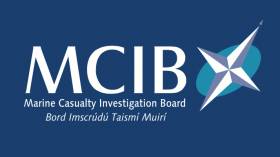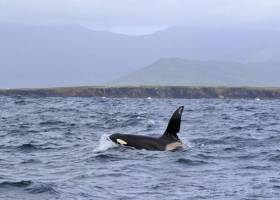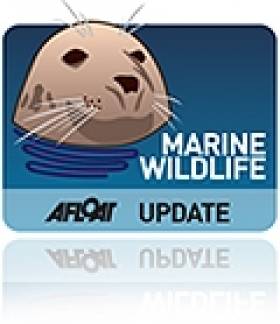Displaying items by tag: Slea Head
Interim Report Into Prawn Trawler Fatality Off Slea Head
#MCIB - The Marine Casualty Investigation Board (MCIB) is continuing its inquiry into the death of a fisherman who went overboard from a prawn fishing trawler off Slea Head a year ago.
The interim report released today (Friday 23 June) details the incident on 30 June 2016, in which a crew member on the FV Cu Na Mara went overboard during the process of reattaching the boat’s two nets from their drums to the middle towing winch at its stern.
The skipper and fellow crew responded immediately to assist the casualty, who was wearing a personal flotation device (PFD) that inflated on contact with the water.
Though the casualty was quickly recovered from the sea and administered first aid by his crew mates, he did not survive.
The MCIB’s full report into the FV Cu Na Mara incident is forthcoming.
Kerry Treated To Rare Sighting Of Killer Whale 'John Coe'
#MarineWildlife - Whale watchers on Slea Head were treated to a special sight earlier this week with the surprise appearance of the killer whale known as John Coe, as the Irish Examiner reports.
Landscape photographer Richard Creagh was among the lucky few on Monday (27 June) to spot the orca known by the distinctive notch on his dorsal fin – though in more recent times he's also lost a chunk of his tail fluke, most likely to a shark bite.
Creagh, a keen marine wildlife watcher for the last 10 years, said: "Up to now killer whales had always eluded me but today I got to add them to my list, and what a sight it was! I’m still buzzing!"
John Coe's unique orca pod are regular visitors to Irish waters, though he himself was last spotted close to our shores almost three years ago at the Inishkeas in Co Mayo, according to the Irish Whale and Dolphin Group – which is asking the public to watch the seas for any more sightings of the senior cetacean.
Killer Whales, Minkes Spotted Off Coast
The Irish Whale and Dolphin Group (IWDG) has announced two new reports of whale spottings off the Irish coast in recent days.
On 14 October the east coast rescue helicopter spotted a group of at least five lunge-feeding whales just four miles off Dunany Point on the southern side of Dundalk Bay.
Their relatively small size, white banding on the pectoral fin and absense of any obvious blow confirmed them to be minkes - a marine wildlife record for the area.
"This is further proof, not that it is needed, that there is a growing list of places outside of the expected 'hotspots' where whale activity is now being documented," said the IWDG's Pádraig Whooley.
Yet more were spotted on the opposite coast the day after, when Nick Massett reported up to a dozen minke whales in a 1.5-mile box off Slea Head, near Dingle.
Meanwhile, this week a group of four killer whales was observed by the FV Celtic Cross on the prawn grounds off Co Louth, travelling in a north-westerly direction towards Dundalk Bay.
"There may well be something very interesting happening in this section of the Irish Sea that is attracting both baleen and toothed whale in the same area," said Whooley.


























































